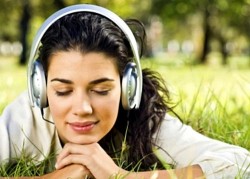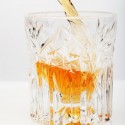What Happens in Depression Treatment Centers?
Depression is a serious mental illness that varies in degrees and symptoms unique to the individual. As such, there are a number of options available for treatment and it is important that treatment begin as soon as possible because the longer the depression goes on, the harder it may be to control.
Symptoms of Depression
Although depression is one of the most treatable disorders of mental health, it is estimated that more than a third of adults who need treatment never speak to a professional. According to the Substance Abuse and Mental Health Services Administration, “Every year, about 15.2 million adults experience a major depressive episode (MDE).” MDE symptoms may include:
- Persistent feelings of sadness, hopelessness, pessimism, or anxiety
- Feelings of worthlessness or guilt
- Loss of interest or pleasure in activities
- Low energy or fatigue
- Insomnia or oversleeping
- Loss of appetite and significant weight loss
- Difficulty concentrating or making decisions
- Persistent health disorders such as headaches, digestive problems, or pain which have no apparent cause
- Thoughts of death or suicide
Determining the Course of Treatment

A variety of methods are used to help people cope with their symptoms in depression treatment.
Depression treatment centers must first evaluate the person to determine the scope of treatment necessary. Depression goes far beyond shared symptoms, causes, co-occurring disorders, or experiences and treatment needs to be tailored to the unique aspects of the individual.
The most common forms of treatment include psychotherapies and medications. Depending on the severity of the depression, treatment can last a few weeks or longer with a long term goal of helping the person be able to manage their depression and live a satisfying and hopeful life.
Depression Treatment Center Programs
Many depression treatment centers take a holistic approach that provides nutrition and exercise plans, talk therapy sessions, counseling, recommended medications, and motivational materials. Some specialize in certain type of treatments while others offer alternative methods such as electroconvulsive therapy (ECT) which uses brief electrical pulses to stimulate the brain while the patient is under anesthesia. ECT may be used when other treatments for depression have had limited success.
Medications
Some medications work better than others on certain types of depression and often a person may be prescribed several different ones before they get relief. Common antidepressants include: Prozac, Zoloft, Lexapro, Paxil, and Wellbutrin.
Psychotherapies
There are several psychotherapies used in depression treatment centers including:
- Cognitive behavioral therapy (CBT) – CBT is based on the assumption that a person’s mood is directly related to their patterns of thought. By changing negative thought patterns to positive ones, the resulting moods and mental state will become more positive as well.
- Interpersonal therapy (IPT) – IPT is often used with children to help them address issues with their family and others and to recognize the affects their symptoms have within the relationships.
- Psychodynamic therapy – Psychodynamic therapy helps patients to explore their emotions and feelings, and to understand how their moods and behaviors are affected by underlying and unresolved issues.

